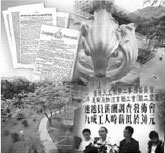Displeasure over new regulations
Updated: 2007-12-04 07:00
Hong Kong business people are a fastidious lot. Spoilt by one of the world's freest economic environments, which is underscored by the rule of law and an efficient government bureaucracy, our business people have grown most suspicious of any new regulations, including those that seek to preserve the very essence of an orderly marketplace thriving on fairness and transparency.

Their collective displeasure about a slew of regulatory initiatives, including fair competition, minimum wage and mandatory quarterly reporting for publicly traded companies, was subtly reflected in the General Chamber of Commerce's annual business prospect survey.
The results of the survey showed a growing concern in the business sector about Hong Kong's competitiveness although most respondents said they were satisfied with the current state of the economy. The majority, 57 percent, of the 323 chamber members interviewed said they did not expect competitiveness would improve in the next three to five years. About 39 percent of the respondents said competitiveness had declined in the past years, while 26 percent thought otherwise.
David O'Rear, the chamber's chief economist, was quoted by the local media as saying that business people in Hong Kong are feeling increasing pressure from the possibility of more regulations. The pressure, said Alex Fong Chi-wai, the chamber's chief executive, is not coming only from Hong Kong. Many members who have factories on the mainland are required to comply with higher wages, stricter quality control and environmental protection practices, he explained.
It is surprising that those proposed regulations cited by the chamber's officials are being considered by Hong Kong business people as causes for pessimism. They should have recognized that the principle behind those regulatory proposals is sound and that those rules, as proposed, are a necessary step in bringing the practice of the Hong Kong marketplace up to internationally accepted standards.
Rather than undermining the business environment, those proposed regulations would further enhance Hong Kong's attraction as an international financial center and a services hub that provides a level playing field for businesses from around the world.
Take the proposed fair competition law. The law obviously is not drafted to harass those companies that have gained a dominant share of the market. Its true purpose is to set a clear legal guideline for both the government and the private sector to avoid engaging, unintentionally, in transactions that may be seen as collusive.

The government has assured that the fair competition law would not place any undue burden on businesses. What is more, business leaders will have ample opportunities to study and comment on the draft before it is tabled at the legislature, in which it is well represented.
The impact of the proposed minimum wage law on the business sector as a whole is expected to be small. In effect, the law would mainly affect the 40,000 to 50,000 cleaners and security guards earning less than HK$6,000 a month. It seems quite out of place for the chamber, whose members include some of the biggest business enterprises in Hong Kong, to have made such a fuss about this piece of legislation.
Quarterly reporting has become a standard practice in many markets, including those on the mainland.
Taken as a whole, these proposed legislations would help to enhance, rather than undermine, Hong Kong's free enterprise economic environment. In this respect, Hong Kong's regulatory framework is actually falling behind other relatively more matured markets. To remain competitive, we must try to catch up fast.
E-mail: jamesleung@chinadaily.com.cn
(China Daily 12/04/2007 page10)
|
|
|
|
|
|